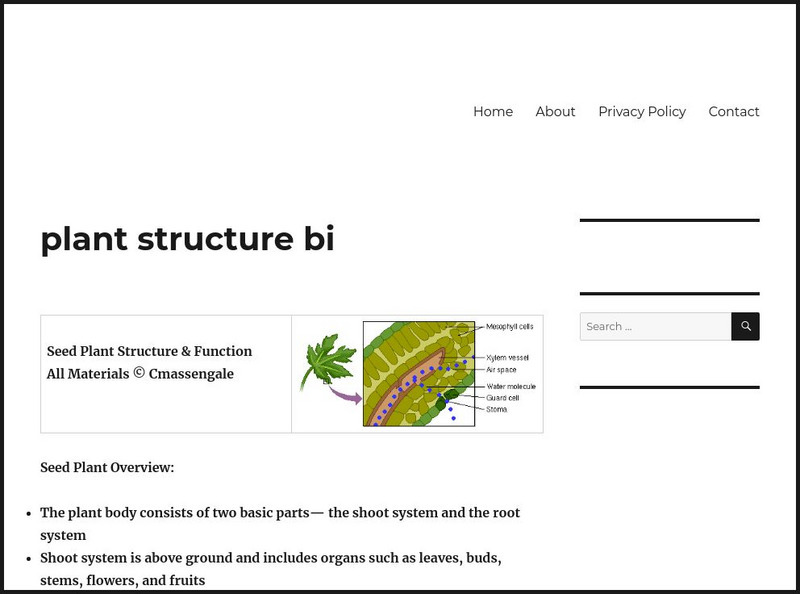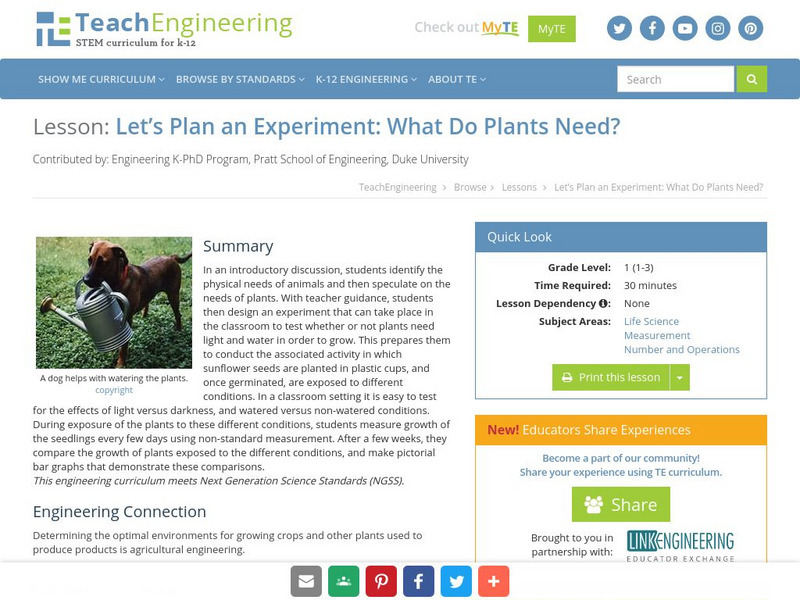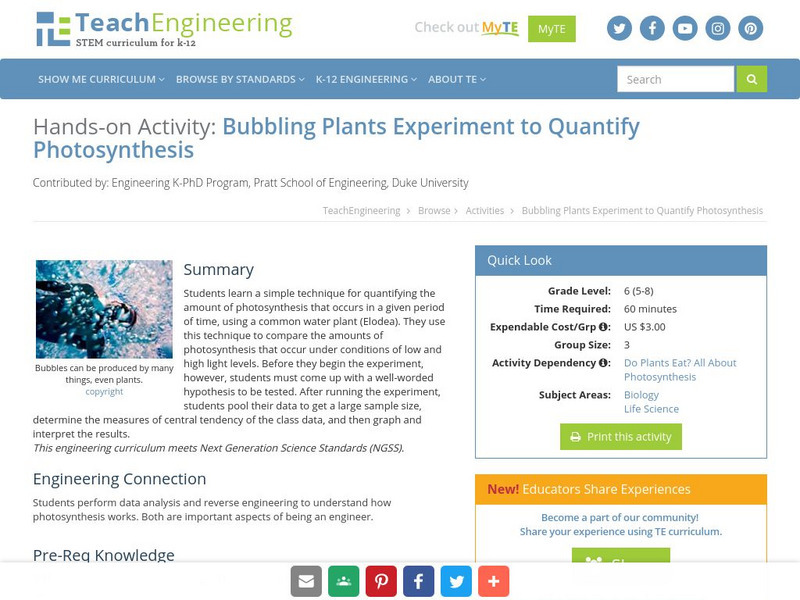Hi, what do you want to do?
Curated OER
Germinate Bean Seeds
Students write the steps needed to germinate bean seeds, make predictions and observations and keep an experience journal and complete a chart.
Curated OER
Birth, Growth, And Development
Students understand that all living things have a life cycle that includes being born, developing into an adult, reproducing, and eventually dying.
TeachEngineering
Teach Engineering: Power Your House With Water
Students learn how engineers design devices that use water to generate electricity by building model water turbines and measuring the resulting current produced in a motor. Students work through the engineering design process to build...
Utah STEM Foundation
Utah Stem Action Center: Sunlight & Water
This activity teaches kids about variables by growing three different plants from seed and explains that variables are something that can be changed in an experiment.
Open Door Team
Open Door Web Site: Feeding in Green Plants
Learn how plants absorb water through either root systems or vessels in their stems with this site. Also understand how important water is to the make up of the plant!
Other
Stuttgard High School: Plant Structure & Function
Site features high school-level comprehensive info on the structure and function of seed plants organized into shoot and root systems. While presented with lots of detail, clear illustrations and animations help make sense of the parts...
TeachEngineering
Teach Engineering: Water Filtration
Students will learn about the importance of water and the role it plays in our lives. Students will be exposed to what must occur each day so that they can have clean water.
HotChalk
Hot Chalk: Lesson Plans Page: Probing Into Plant Parts
In this lesson plan students will obtain a better understanding of a plant's needs, and how the various parts of the organism help it to meet its needs. Students will understand how some plants are alike and different.
CK-12 Foundation
Ck 12: Life Science: Plant Like Protists
[Free Registration/Login may be required to access all resource tools.] Plant-like protists are known as algae. They are a large and diverse group. Plant-like protists are autotrophs. This means that they produce their own food. They...
TeachEngineering
Teach Engineering: Who Needs What?
The teacher leads a discussion in which students identify the physical needs of animals, and then speculate on the needs of plants. With guidance from the teacher, the students then help design an experiment that can take place in the...
TeachEngineering
Teach Engineering: Glowing Flowers
Student teams learn about engineering design of green fluorescent proteins (GFPs) and their use in medical research, including stem cell research. They simulate the use of GFPs by adding fluorescent dye to water and letting a flower or...
TeachEngineering
Teach Engineering: Saltwater Circuit
Students build a saltwater circuit, which is an electrical circuit that uses saltwater as part of the circuit. Students investigate the conductivity of saltwater, and develop an understanding of how the amount of salt in a solution...
Museum of Science
Museum of Science and Industry: Online Science: Color Changing Carnations
A popular plant experiment where food coloring is added to the water that flowers sit in, to see how this affects the color of the flowers. It demonstrates how water travels through the xylem of a flower stem.
TeachEngineering
Teach Engineering: Bubbling Plants
Students learn a simple technique for quantifying the amount of photosynthesis that occurs in a given period of time, using a common water plant (Elodea). They can use this technique to compare the amounts of photosynthesis that occur...
















